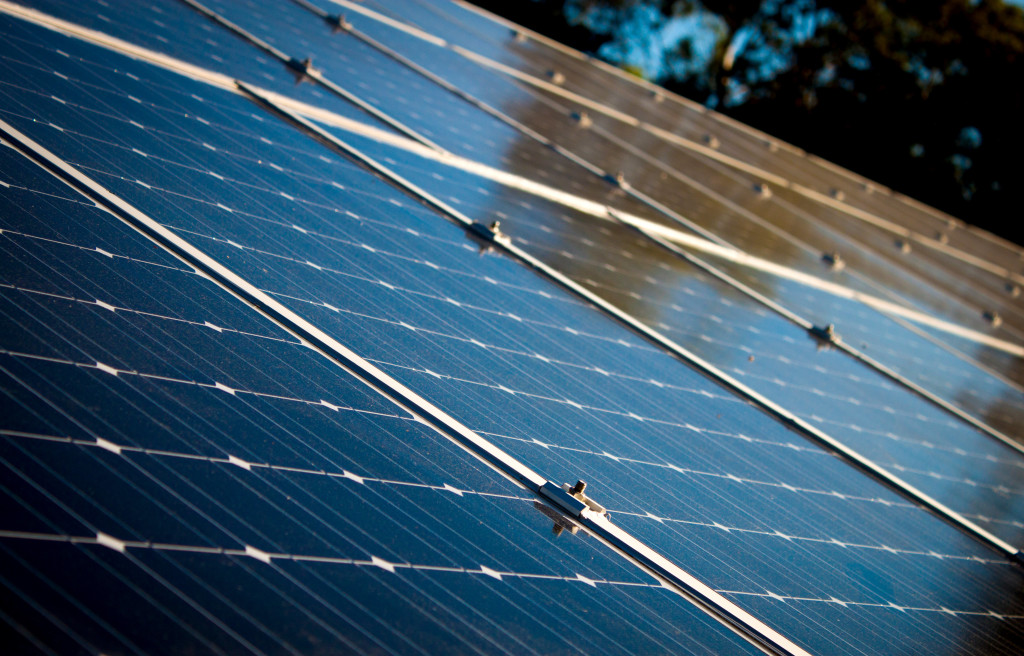Reducing Air Pollution with Solar Panels
June 19, 2017
With expanding environmental consciousness and growing concern for the environment, more members of our society are embracing renewable energy as the solution that will minimize the use of non-renewable resources and mitigate the hazardous effects of global warming and pollution. Among renewable resources, such as wind, rain, tides and waves, sunlight has the widest application in green households. Solar power is a clean and sustainable energy source that can satisfy the needs of any household while simultaneously reducing its ecological footprint, and with a variety of technologies, there are plenty of options for residential use of solar energy. Relying on fossil fuels, such as coal, petroleum, natural gases and decayed marine species, as our main energy source entails burning those fuels. Apart from being finite, fossil fuels contain carbon that is released upon the heating of those fuels, disrupting the carbon balance of our planet and causing harmful impacts. Consequently, this causes air pollution, among other issues, and affects human health and well-being. Air pollution is a serious issue that can cause health problems like respiratory irritability, brain damage, heart attacks and cancer. Switching to renewable energy that doesn’t require burning of fuels will reduce the carbon emission significantly. Solar energy plays an important role in combating air pollution by generating power with solar panels and eliminating the emission of harmful greenhouse gasses. Even a single household that has switched to solar energy can make a difference, so worldwide adoption can have a significant impact. The use of solar energy offers other environmental benefits along with reduced air pollution. Namely, switching to solar energy also reduces water consumption and pollution because the technology that generates electricity from solar power doesn’t require water. On the other hand, traditional power plants that use natural gas and coal to generate electricity also require a massive amount of water. Another important benefit of solar energy is the fact that it reduces the need for finite resources. The sun produces 173,000 terawatts of solar energy per second, which is more than 10,000 times the world’s total energy use. Although it may take some time for finite resources to completely disappear, switching to solar energy before any irreparable environmental damage occurs is of the utmost importance. Homeowners are switching to solar power in the attempt to reduce their carbon footprint, as well as to increase their savings. If you fulfill all the necessary requirements, ultimately you can save a sizeable amount of money on your utility bills. The most common use of solar power in households is through solar roofing panels. Solar panels are photovoltaic (PV) cells, a special type of battery that gather sunlight which is then transformed into energy. That energy is sent to an inverter which then converts it into electricity. Depending on your needs, there are different types of solar systems. A common option for a household with an average energy consumption is a 3kW solar system, while a 5kW solar system is a more appropriate solution for a household with a greater need for energy. However, no matter how much energy you consume, if you choose an appropriate solar system, it will meet your everyday needs. Another common example of residential use of solar energy is solar lighting. This type of lighting is wireless and it gathers sunlight during the day which is then used to generate electricity during the night. Although solar lighting isn’t as popular as solar panels, it’s gaining popularity due to its cost-effectiveness and aesthetic appeal of lighting fixtures. Solar heating is also among common residential uses of solar energy designed to heat both water and space. Solar heaters are a bit less expensive than solar panels, which makes them a great solution for households that can’t make a larger investment at the moment. Solar thermal technology can be used even to warm pools, which has proven to be both cost-effective and eco-friendly. Global warming and air pollution are pressing issues, so environmentally friendly solutions like solar energy play a vital role in preserving the environment. A growing number of homeowners are embracing solar power in the attempt to help the environment and design healthy and sustainable homes.
Combating air pollution

Other environmental benefits of solar energy

Residential use of solar energy